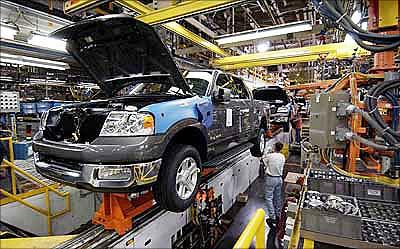|
|||||||
Success tips from world's top management guru |
 |
|
Views: 5195
|
Thread Tools |
Rating: 
|
|
|||||||
Success tips from world's top management guru |
 |
|
Views: 5195
|
Thread Tools |
Rating: 
|
|
#6
|
|||
|
|||
 Being anchored in reality and taking small steps towards that vision is equally critical. We have to learn to look at the stars and count the grains of sand at the same time. Any company that cannot imagine the future won't be around to enjoy it. Managing differently calls for a major revolution in the way we perceive our own roles as managers. The biggest transition that needs to be made is to move away from managing to leading, from administration to entrepreneurship. Whether it is quality levels, logistics, costs, scale, working capital management, or capital efficiency, there is no room for the second best. Good is not good enough anymore. If you want to understand how the future is being created, you have to understand how decisions get made, how people allocate resources, how choices get made. Image: Ratan Tata introduces the Nano at the 9th Auto Expo in New Delhi on January 10, 2008. | Photograph: Kamal Singh/ PTI |
|
#7
|
|||
|
|||
 Why don't people have economic opportunities? Because there's no information. You don't know what the price of fish is in the next village. The large-company Internet business models, the Internet poor, the new business models -- they're one big circle. They all interact with one another. But we have to make this a business issue. A commitment to lead in the creation of new opportunities -- an opportunity-led management system -- is critical. Most often, managers change in reaction to a crisis or a problem, not in search of opportunities People are intelligent enough to know what they are getting and not getting. The greater the angst of sales and marketing managers over the decision to sell core products to outsiders, the more likely it is that the firm's in-house channels are less efficient than alternate distribution channels How to distinguish non-core capabilities from core competence? In the broadest terms, a company many have 40 or more primary s****s, but only 5-15 core competencies. Senior management has to focus on which competencies are at the centre of their business. |
|
#8
|
|||
|
|||
 Excitement is manifested strategically by employees seeing how their jobs link up with attainment of a goal. The new strategic intent presents a challenge, and engages employees' intellectual energy. Like Ford did in the early 1980s with its quality campaign, managers must make every employee aware that without their help, the company will not regain or increase its competitiveness. Companies that create the future do more than satisfy customers, they constantly amaze them. Beyond reengineering a firm, top managers must know how to reengineer their entire industries, a la CNN, Wal-Mart, and Service Corporation International. Pathbreakers all, they recognized their core competencies and developed strategies to reshape industry structures around their competitive competencies. Rebuild leadership before you need to. Business must start with the assumption that consumers don't want to apply the same amount of effort to construct all their experiences. Today, I will take whatever coffee I'm given -- but on another occasion, I might be more particular. Image: Inside a Ford Motor company. |
|
#9
|
|||
|
|||
 Management must be performance oriented. Meritocracy, stretch targets, clear measurements and rewards based on contribution are the keys to a high performance culture. We have company think, not consumer think. What we make is not what they want. People shift their priorities, where they want to customise, where they want to invest their energy and expertise. If you build systems for total participation and co-creation, buying off-the-shelf is a sub-set and is also possible. If you only build a system for what's available and what you make, then people cannot co-create. Over time successful business recipes become dull -- your success leads to business structures that may become dysfunctional. What we need to ask ourselves is -- is there a different way? Image: An employee plays with Lego at Google's New York City office, March 10, 2008. | Photograph: Erin Siegal/ Reuters |
|
#10
|
|||
|
|||
 To be extraordinarily sensitive and concerned about key competitors, especially those who have more experience and technology capabilities, is not a wise thing to do. I think we have to distinguish between being respectful and being concerned about competitors. At headquarters, managers are focused on the markets already being served, not the potential markets of the future. When this happens, the company is hostage to existing markets, even though it may possess highly-evolved core competencies which can be leveraged for the future. By creating a mismatch between aspirations (more) and resources (less) you create entrepreneurship. Entrepreneurs leverage resources and change the business model to get more, for fewer resources. So the task for us is, how to create aspirations that rest outside the current resource base You have to have faith: otherwise, every time there's a minor problem in the implementation, you'll change direction. Just because you are going north, doesn't mean it's going to go in a straight line. Start with clear specifications and a clear idea of gaps by auditing your own internal structure. Then create small internal experiments to move one step at a time rather than turning everything upside down. Image: Dhirubhai Ambani developed his own unique strategies to deal with competition. | Photograph: Rediff Archives |